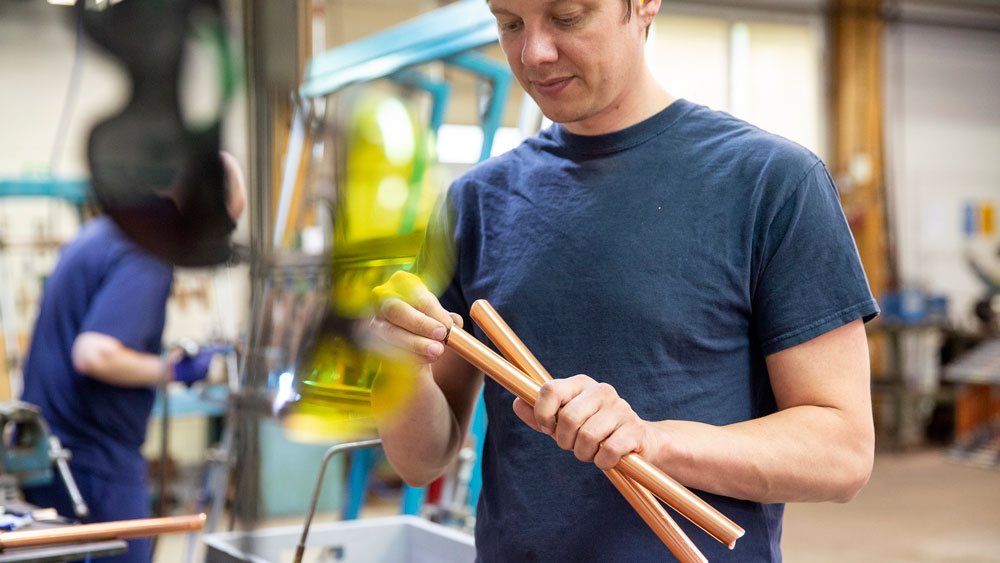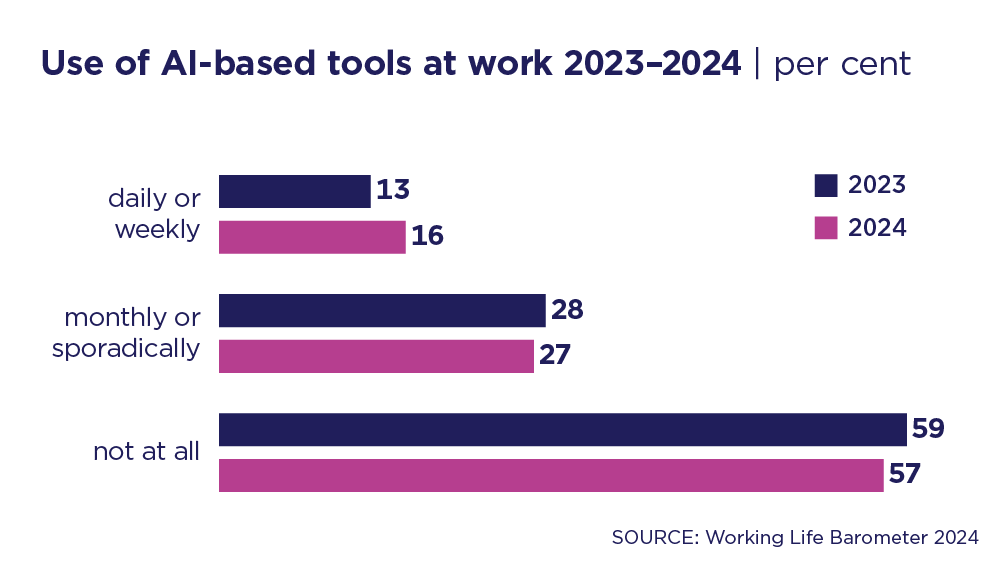Working Life Barometer 2024: Quality of working life remains good despite increasing uncertainty in the labour market

According to the Working Life Barometer, wage-earners often experience time pressure and interruptions in their work. On the other hand, the atmosphere at workplaces has improved. While learning new things is still supported at workplaces, the amount of training offered by employers has decreased clearly in recent years.
The Working Life Barometer published annually by the Ministry of Economic Affairs and Employment describes the quality of working life among wage-earners. A total of 2,072 wage-earners responded to the survey in autumn 2024 and the results can be generalised to apply to all wage-earners in Finland. The data will be utilised, for example, in the Working Life Development Strategy, which is currently under preparation.
Views on the labour market turn less optimistic
The views of wage-earners on the current state of the labour market have become more negative in the past two years. Compared with the previous year, the views on the labour market were more negative in autumn 2024. Significantly more people considered a lay-off possible. Of those surveyed, 14 per cent said a lay-off could be possible in the next 12 months and four per cent were certain of it.
Meanwhile, seven per cent of wage-earners considered a termination possible in the coming year, and two per cent were certain of it. Confidence in finding a new job also fell further.
Time pressure and interruptions are common
Time pressure at work is common, but it has not increased in recent years. In 2024, a quarter of wage-earners worked on a tight schedule or very quickly on a daily basis, and 38 per cent weekly.
This is the first time the Working Life Barometer asked the respondents about interruptions at work. According to as many as a quarter of wage-earners, the Barometer’s statement that work was interrupted often due to unexpected tasks describes their work very well. About 38 per cent thought the statement describes their work fairly well.
Atmosphere and culture of continuous learning have improved
Over the past 20 years, the atmosphere at workplaces has become more positive. In 2024, more than four out of five wage-earners felt that their workplaces had an atmosphere based on trust, where information was communicated openly, employees were treated equally and conflicts could be resolved.
The opportunities of wage-earners to develop skills and contemplate new ideas have improved in the long term, but growth has levelled off since 2017. The majority of wage-earners feel that they can constantly learn new things at work and that they are encouraged to experiment. At the same time, however, the amount of training offered by employers has decreased markedly in recent years.
The Working Life Barometer 2024 asked about induction for the first time. Of the respondents, 77 per cent felt that new employees received sufficient induction at their workplace.
Use of artificial intelligence (AI) has increased only slightly from previous year
The use of digital and technological devices has become a norm in working life. Only five per cent of wage-earners do not use such devices in their work at all. By contrast, the time spent on digital devices varied considerably. Close to a half of wage-earners used such devices in their work almost all the time, and around one-fifth used them during 50 to 75 per cent of their working time.
Of those wage-earners using digital and technological devices, 16 per cent used AI-based tools at least weekly. The use of artificial intelligence has increased relatively little compared with the previous year, with the most growth taking place among senior white-collar employees.
Inquiries:
Maija Lyly-Yrjänäinen, Chief Specialist, Ministry of Economic Affairs and Employment, tel. +358 295 047 297

More information about the Working Life Barometer
Working Life Development Strategy
